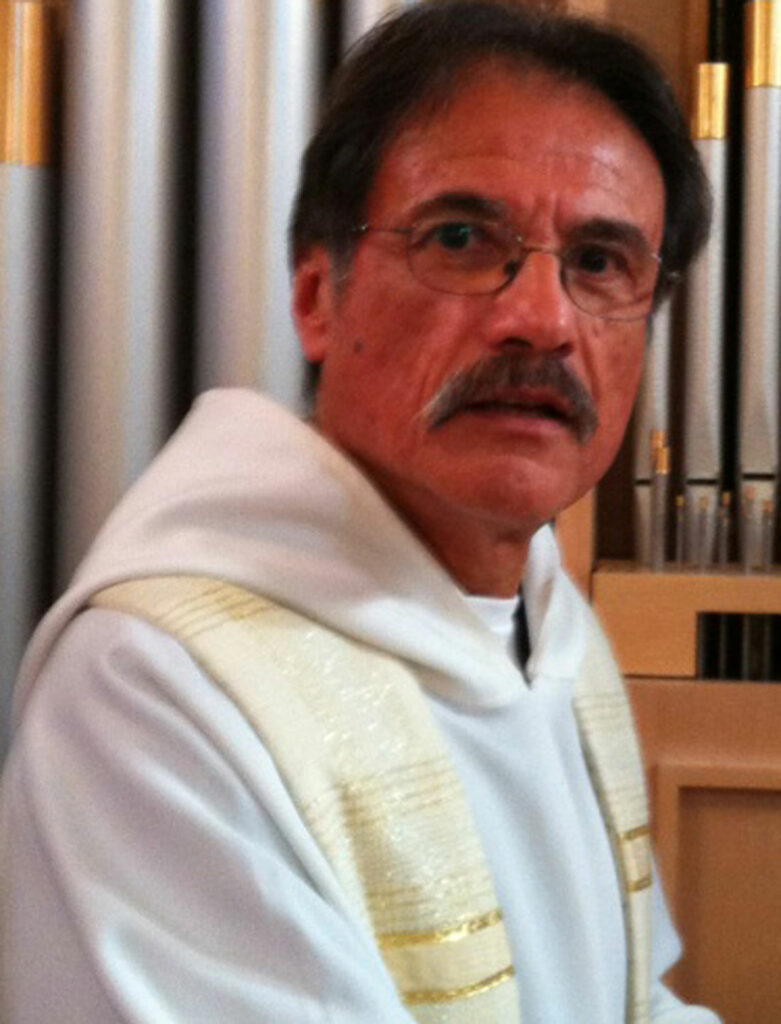I have just returned from walking the El Camino, an 80-mile pilgrimage of seven days from Vigo to Santiago de Compostela in northern Spain. Since the ninth century it has been one of the three great pilgrimage sites for Christians, along with Jerusalem and Rome. The route is a UNESCO world heritage site; over 200,000 pilgrims walk it annually. I walked with four friends; it was a once in a lifetime experience. As I write, Pastor Anita Warner of Advent Lutheran Church is walking the El Camino on pilgrimage.

One of the results of my pilgrimage is that I intend to walk more. I want to contaminate less and protect the environment. My resolve is to walk to any place that is less than a mile away.
Being a pilgrim is distinguished from being a tourist. A tourist goes to see, to watch, to learn about places and people. A pilgrim goes for a religious purpose: to get in touch with the sacred, to worship, to do penance, to fulfill a vow, to ask for a blessing, to get in touch with oneself. As one walks the many miles each day there is plenty of time to think and to share with fellow pilgrims.
Pilgrimage is important to all the great religions of the world. For Muslims it’s the Hajj or pilgrimage to Mecca; for Christians and Jews—as well as Muslims—it’s Jerusalem.
I have been privileged to go on many pilgrimages including eight times in Jerusalem. I have also been to many specifically Catholic pilgrimage sites: Rome, Italy many times; Guadalupe in Mexico, and other Catholic shrines.
But I have also been blessed with the privilege of going on pilgrimage to the holy sites of other religions. I have been to the Golden Temple in Amritsar, India, a place of pilgrimage for Sikhs. I have been to the Deer Park in Sarnath, India, where the Buddha was enlightened and to many Hindu holy sites in India, including the Ganges River at Varanasi. I have sensed the sacred in all of them and admired the great devotion and sacrifice of the pilgrims.
So much great literature is about pilgrimage: Chaucer’s Canterbury Tales, the classic of Protestant spirituality; Paul Bunyan’s Pilgrim’s Progress; the classic of Catholic spirituality, St. Teresa of Avila’s Camino de Perfección; and Jack Kerouac’s On the Road. There is music: Mahler’s Songs of a Wayfarer, Liszt’s Annes de Pelerinage. Many poems are about pilgrimage, including Robert Frost’s The Road Not Taken.
Pilgrimage is a metaphor for life. Our whole life is a pilgrimage, a journey toward the sacred. The great Spanish poets talk about this. I am reminded of Antonio Machado:
Caminante, no hay camino,
se hace camino al andar.
Al andar se hace el camino,
y al volver la vista atrás
se ve la senda que nunca
se ha de volver a pisar.
Wayfarer there is no road
you make the road as you walk.
As you walk you make the road
and when you turn and look back
you see the path
over which you will never again tread.
Father Jose Rubio is the Retired in Residence pastor of St. Mary’s Catholic Parish in Gilroy. He is one of the original members of the Interfaith Clergy Alliance of South County. Father Jose can be reached at [email protected].








